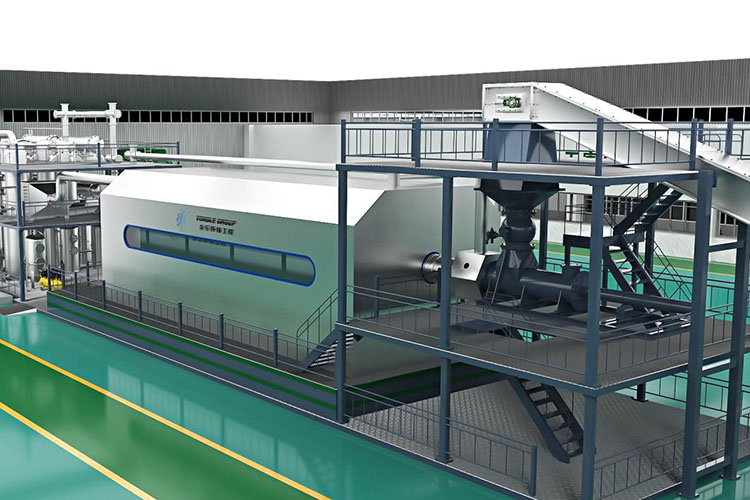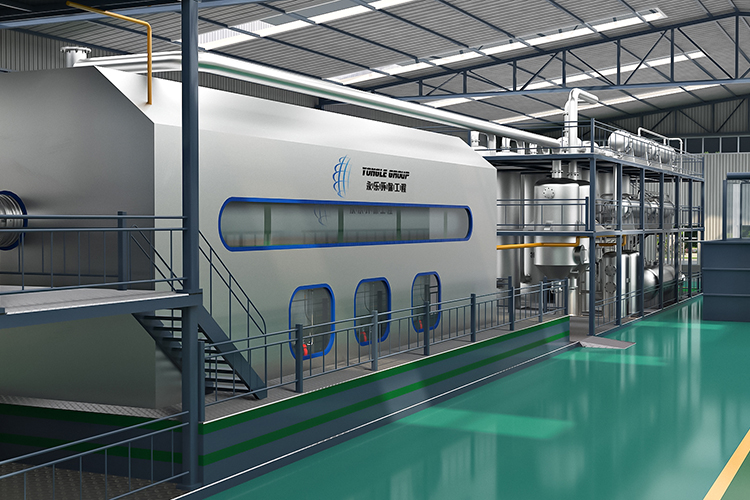The disposal of medical waste has always been an important issue in the medical industry. With the rapid development of the medical industry, the amount of medical waste generated is also constantly increasing. How to effectively, safely, and environmentally dispose of these wastes is not only related to the daily operations of hospitals and medical institutions, but also directly affects public health and the sustainable development of the environment. Therefore, the research and application of medical waste disposal equipment are particularly important. These devices are not only one of the essential infrastructure for modern hospitals and medical institutions, but also an important means to ensure that medical waste meets national environmental protection and safety disposal standards.

There are various types of medical waste, including infectious waste, pharmaceutical waste, hazardous waste, chemical waste, and other waste. Infectious waste usually includes medical devices, syringes, needles, etc. used by patients, which may carry pathogenic microorganisms. If not handled properly, they can easily cause cross infection. Pharmaceutical waste includes discarded drugs, expired drugs, drug packaging, etc. These wastes contain chemical components, and once mishandled or thrown around, they may pose a threat to the environment and human health. Damaged waste such as broken glass containers, sharp objects, etc. often contain sharp edges, which can easily harm operators or other groups of people. Chemical waste such as disinfectants, chemical reagents in drugs, etc., if not disposed of properly, may cause long-term pollution to water sources, soil, etc. Other waste includes expired equipment, discarded packaging, etc. They may not be directly hazardous waste, but they also need to be properly disposed of.
The functionality of medical waste disposal equipment is crucial for these different categories of medical waste. The basic task of medical waste disposal equipment is to process medical waste into harmless and recyclable substances through physical, chemical, and biological means, ensuring the safety and environmental protection of waste disposal. At present, the mainstream medical waste treatment methods in the market include incineration, steam disinfection, high-pressure sterilization, pyrolysis treatment, etc. Different treatment methods have different treatment effects for different types of waste, and it is usually necessary to choose appropriate equipment based on the specific properties of the waste.
One of the biggest advantages of medical waste disposal equipment is its environmental friendliness. With the increasing global attention to environmental issues, the treatment of medical waste should not only consider effectiveness, but also comply with environmental standards. Many modern medical waste treatment equipment adopt high-temperature incineration technology, which can completely burn waste and convert it into harmless gases or ash, greatly reducing the emission of harmful substances. Some devices are also equipped with efficient exhaust gas treatment systems that can effectively remove toxic and harmful gases, ensuring emissions meet environmental standards. These devices can also reduce the generation of secondary pollution and prevent the release of harmful substances to the environment during waste treatment.

In addition, the efficiency of medical waste disposal equipment is also a major advantage. In the treatment of medical waste, time is often a key factor, especially as hospitals and medical institutions generate a large amount of waste every day. If waste is not disposed of in a timely manner, it may cause environmental pollution, cross infection, and other problems. Modern medical waste treatment equipment usually adopts automated control systems, which can quickly process large amounts of waste and reduce space problems caused by waste accumulation through efficient processing methods. Through advanced physical and chemical treatment technologies, these devices are able to process medical waste into harmless substances in a relatively short period of time, improving overall treatment efficiency.
High safety is also a core advantage of medical waste disposal equipment. The treatment of medical waste involves multiple personnel, complex operating environments, and a wide variety of waste types, which requires equipment to have high safety. Equipment is usually equipped with multiple safety protection measures, such as protective covers, leak detection alarm systems, etc., to ensure that no danger occurs during operation. At the same time, equipment design usually takes into account the specificity of waste types, such as the handling of sharp and pharmaceutical waste, which requires professional design to avoid harm to operators and the external environment.
Modern medical waste treatment equipment also has the advantages of energy efficiency and sustainability. Many devices adopt energy-saving technologies to reduce energy consumption and operational costs through efficient combustion, waste heat recovery, and other means. Meanwhile, many devices can further reduce resource waste and environmental burden by recycling reusable components such as metals, plastics, etc. from waste.

In terms of operation, modern medical waste disposal equipment is increasingly emphasizing simplicity. Many devices are equipped with intelligent operation interfaces, allowing users to perform simple operations such as starting, stopping, and monitoring of the device. At the same time, the equipment is also equipped with a real-time monitoring system, which can be managed through remote control to ensure that the equipment is always in good working condition. The application of automation technology reduces the complexity of manual operations, improves processing efficiency and equipment reliability.
In summary, medical waste disposal equipment has played an important role in ensuring the safe operation of medical institutions, improving work efficiency, and protecting the environment. With the continuous innovation of technology and the increasing demand for environmental protection, the functions of medical waste disposal equipment will become more perfect and will play a more important role in the future medical industry.
Yongle Environmental Protection is mainly engaged in the research and development, production and sales of complete sets of technical equipment for organic solid waste disposal and comprehensive utilization. Production and manufacturing, domestic waste treatment equipment, tire pyrolysis equipment, medical waste disposal equipment, hazardous waste disposal equipment, and achieve efficient and comprehensive utilization of resources through independently developed low-temperature anaerobic pyrolysis equipment technology solutions.
Tags:Introduction and advantages of medical waste disposal equipment,medical waste disposal equipment,YONGLE GROUP
 Latest news
Latest news


























